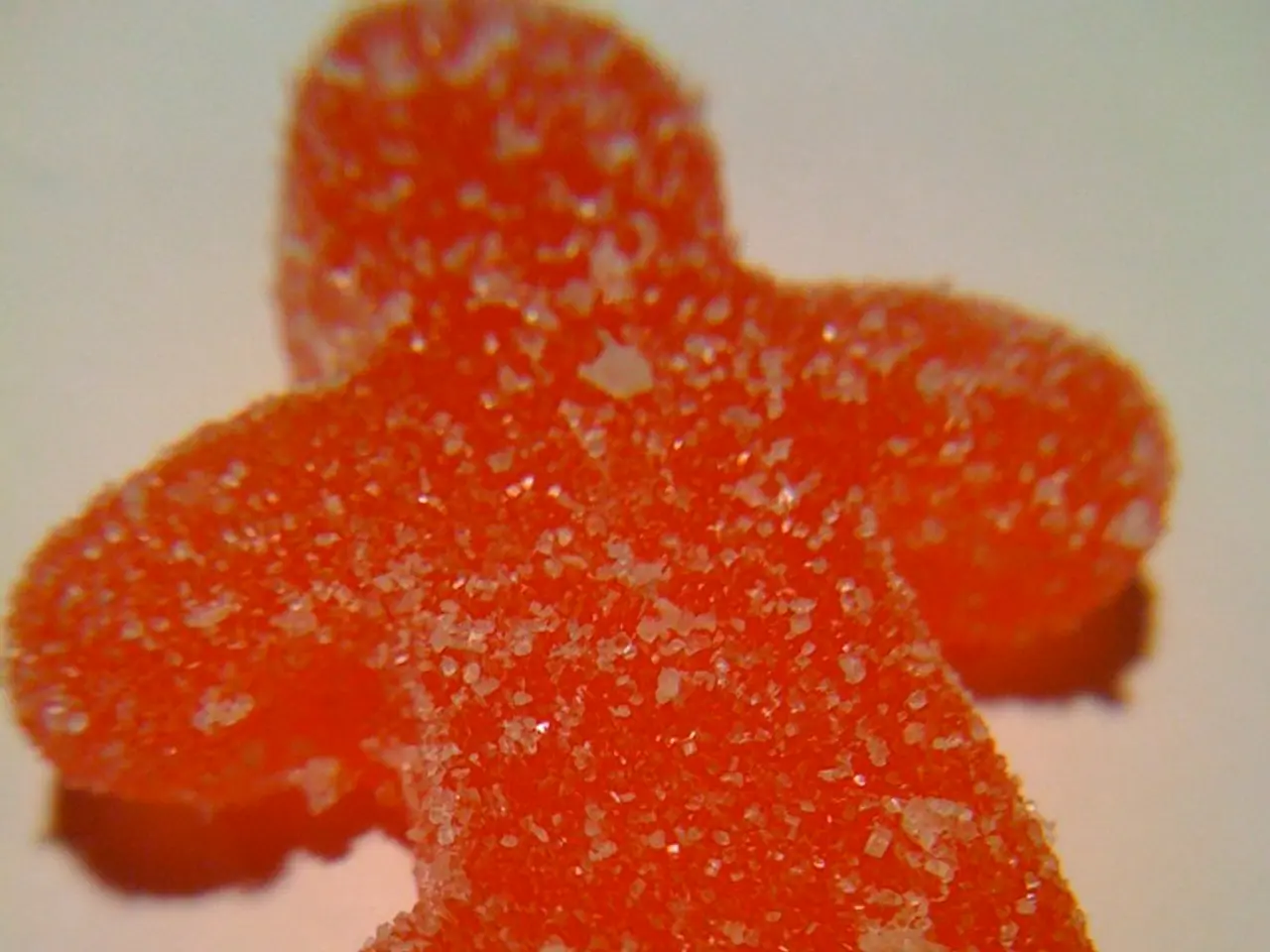Artificial Sweetener Saccharin: Understanding Its Uses, Potential Risks, and Advantages
Saccharin, a calorie-free sweetener, remains prevalent in the ingredients of many foods and drinks. First discovered by accident in 1879, it's primarily used as a non-nutritive sweetener, and its primary forms include acid saccharin, sodium saccharin, and calcium saccharin.
The Food and Drug Administration (FDA), World Health Organization (WHO), and European Food Safety Authority (EFSA) agree that saccharin poses no risk and is safe for human consumption. However, its safety has been a subject of debate in the past, with the FDA initially classifying it as possibly cancerous. Subsequent research, however, did not find clear evidence of an association between saccharin consumption and cancer risk.
The FDA sets limits on the acceptable amount of saccharin in beverages and processed foods, and manufacturers may combine it with other sweeteners, such as aspartame, to combat its bitter taste. Sodium saccharin is most popular in artificial sweeteners, although some people find it has a bitter, metallic aftertaste.
While the current scientific consensus is that saccharin is generally considered safe for human consumption at recommended levels, its long-term effects on metabolic disorders are not fully settled. Studies suggest that while NNS including saccharin might aid in reducing sugar intake and managing blood glucose, there is controversy and inconsistent evidence about their impact on insulin resistance, weight gain, and gut microbiota changes. Some research indicates potential negative metabolic effects, but no general consensus has been reached, and the issue remains complex and under ongoing investigation.
The EFSA has recently stated that saccharin is unlikely to cause cancer and has raised the acceptable daily intake (ADI) levels for some artificial sweeteners, although this update mainly focused on acesulfame potassium rather than saccharin directly. The U.S. FDA approves saccharin as safe for use and removed it from the list of probable carcinogens after evidence showed the rodent cancer risks did not apply to humans.
Beyond food items, saccharin has other uses, including cosmetics, chewing tobacco and snuff, pharmaceuticals, and cattle feed. Emerging evidence suggests that saccharin may negatively impact human health by raising blood sugar levels and potentially contributing to the development of metabolic disorders like obesity, cancer, and diabetes. However, these findings require further research for confirmation.
In summary, saccharin is confirmed safe for cancer risk at normal consumption levels, but its long-term effects on metabolic disorders are not fully settled, warranting cautious use and more research to clarify potential metabolic impacts.
[1] European Food Safety Authority (EFSA). (2020). Scientific Opinion on the re-evaluation of the safety of the food additive saccharin (E 954). Retrieved from https://efsa.onlinelibrary.wiley.com/doi/abs/10.2903/j.efsa.2020.5937
[2] Fowler, S. P., & Blumberg, J. B. (2019). Artificial sweeteners and the microbiome. Trends in endocrinology & metabolism, 30(10), 769-780. Retrieved from https://doi.org/10.1016/j.tem.2019.06.005
[3] Food and Drug Administration (FDA). (2021). Saccharin. Retrieved from https://www.fda.gov/food/ingredientspackaging-labeling/saccharin
- Despite safe consumption for cancer risk at normal levels, the long-term effects of saccharin on metabolic disorders like obesity, cancer, and diabetes are not fully understood, necessitating cautious use and further research.
- The European Food Safety Authority (EFSA) has stated that saccharin is unlikely to cause cancer, while raising the acceptable daily intake (ADI) levels for some artificial sweeteners, although this update mainly focused on acesulfame potassium rather than saccharin directly.
- saccharin is widely used in various sectors beyond food, including cosmetics, pharmaceuticals, and cattle feed, with some evidence suggesting potential negative impacts on human health, particularly concerning metabolic disorders.
- While saccharin is confirmed safe for human consumption at recommend levels by organizations like the Food and Drug Administration (FDA) and World Health Organization (WHO), its use in diets and lifestyles may require more attention in terms of the potential long-term effects on metabolic health, as debated by the scientific community and demonstrated in various studies on nutrition, health-and-wellness, and food-and-drink.




